Under the pressure of insecurity, they unwittingly encourage the illegal smuggling of weapons and ammunition in the country
Carl’s house is « a small fortress, » by his own account. The man from Torcel not only has weapons but also plenty of ammunition and surveillance cameras.
But Carl is not part of the gang led by Vitelhomme Innocent that dominates the area.
No.
Carl is a practicing physician, and he collects weapons to ensure the safety of his family.
« Every person should protect themselves when the state is unable to fulfill its responsibilities, » concludes the former student of the Faculty of Medicine and Pharmacy (FMP) at the State University of Haiti (UEH), who refuses the use of their full name in this article for security reasons.
Everyone should protect themselves when the state is unable to fulfill its responsibilities.
Many professionals, wealthy individuals, and ordinary citizens of the country are joining Carl in this arms race.
This race generates money and fuels the smuggling and illicit trafficking of firearms and ammunition, according to experts. It’s one of the « most flourishing markets in the country, » and the vast majority of this equipment enters Haiti illegally, as stated in a report by the United Nations Office on Drugs and Crime (UNODC) released in February 2023.
According to the report, the primary source of firearms and ammunition supply to Haiti is the state of Florida in the USA.
Read also : Les armes des États-Unis alimentent l’insécurité en Haïti
Often, firearms—more than 500,000 in the country according to a report—pass through customs hidden in boxes of consumer products, electronic gadgets, or cargo containers. Sometimes, intermediaries in the Dominican Republic act as conduits.
This arms race also brings Haiti closer to its larger American neighbor, the most violent country in the Western world, where four out of ten adults report living in a household with a firearm.
Many professionals, wealthy individuals, and ordinary citizens in the country are joining Carl in this arms race.
In reality, the United States has an average of 120.5 firearms for every 100 inhabitants, according to a report. It is the only country in the world with more firearms owned by civilians than there are inhabitants.
The right to bear arms is enshrined in the United States Constitution. Advocacy groups for this industry, such as the National Rifle Association (NRA), promote the slogan: « The only way to stop a bad guy with a gun is to have a good guy with a gun. »
However, research shows that the higher the number of firearms in a country, the more violence and gun-related deaths tend to increase. For example, in 2021, 48,830 people died from firearm-related injuries in the United States.
Indeed, research shows that the higher the number of firearms in a country, the more violence and gun-related deaths tend to increase.
These considerations remain minor for Haitian citizens like Carl, who have to contend with armed gangs equipped with weapons coming from the United States, as is the case in various countries in Latin America and the Caribbean.
The professional has already closed one of his two clinics in the metropolitan area due to insecurity. Furthermore, on March 20, 2023, a massacre carried out by Vitelhomme Innocent’s men just a few kilometers from his house forced him to take refuge at home with his family.
Also see: Nouveaux détails sur l’attaque armée perpétrée contre le juge Wilner Morin
Haiti is becoming increasingly violent.
The number of homicides recorded in the country has risen from 1,141 in 2019 to 2,183 in 2022, and the gangs exert almost uncontested control over half of the national territory, according to UNODC data.
« The use of alternative methods of self-protection reflects a state that has lost its monopoly on legitimate violence, » says Djems Olivier, a PhD in Geography.
The windfall from arms and ammunition trafficking and sales benefits state officials, criminals of all kinds, and even police officers.
Also see: Des policiers vendent illégalement des armes à feu en Haïti
It remains legal to possess a firearm within the confines of one’s home in Haiti. Buyers of these protective tools know where to go to obtain ammunition. Often, these sellers are the same individuals who supply the criminals.
The use of alternative methods of self-protection reflects a state that has lost its monopoly on legitimate violence.
A young professional who worked, until 2022, at a company specializing in printer sales on Rue Roger in Pétion-Ville claims to have voluntarily left his job after realizing that his workplace was being used as a cover for underground arms trade.
« In the back part of the house, we used to have shipments of weapons brought in and stored, » claims the professional, who refuses to use his name for security reasons.
Maintaining that he was sometimes nearby when boxes of weapons entered the house, the man confides to AyiboPost that the people acquiring them were « mostly biracial, » just like his boss.
Buyers of these self-protection tools know who to contact to acquire ammunition. Often, these sellers are the same individuals who supply the criminals.
« I was afraid every time I heard the sirens of a police patrol passing by the neighborhood, » says the man who left his job because he feared being arrested if, by chance, the police raided the premises.
Weapons are political instruments that sustain a genuine criminal economy. This is the opinion of sociologist Géraldo Saint-Armand, who observes that armament becomes a source of « rent that fosters enrichment » in a context where the deficit of a public protection system, linked to the state’s failure, gives rise to a range of alternatives, not only on an individual but also on a clan-based level.
Haiti’s 1,771 kilometers of coastline and its 392-kilometer land border with the Dominican Republic are not adequately monitored. The numerous public and private ports, irregular roads, clandestine landing strips, and porous borders further exacerbate criminal markets in Haiti, according to UNODC.
Weapons are political instruments that sustain a real criminal economy.
The country only has 294 land border police agents (Polifront) and the coast guard has just 181 personnel, with only one operational ship. These deficits weaken the chain of custody of seized contraband, particularly drugs and firearms.
Also see : 500 000 armes à feu circulent dans le pays. Seulement 45 000 sont légales.
Dodo, a journalist who studied Legal Sciences at the School of Law and Economics in Gonaïves (EDSEG), decided to acquire a firearm following an incident where he and his brother were attacked in a car on Marcelin Street in Port-au-Prince, in 2016.
Heavily armed bandits pointed their weapons at them and ordered them to hand over everything of value in the vehicle: cell phones, money, and other belongings.
When the robbery ended, the vehicle of the fleeing bandits collided head-on with a police car, which did not hesitate to open fire. A shootout ensued between the bandits and law enforcement officers. Caught in the crossfire of bullets flying in all directions, Dodo’s brother had the misfortune of being hit in the head by a projectile. He survived after two weeks in a coma and a major surgery.
Read also : Blindage de véhicule, une industrie en plein boom en Haïti
The following year, the radio host, who also taught classes in Martissant 23, was offered the purchase of a « zoulou » (a colloquial term for a firearm) by one of his students for $1,000 USD.
Dodo did not purchase the lethal object but occasionally used it in exchange for a few dollars, seeking the « sense of security that the weapon gave him. »
The radio host who also taught classes in Martissant 23 was offered the purchase of a « zoulou » (a colloquial term for a firearm) by one of his students for $1,000 USD.
The reliance on weapons for protection can sometimes degenerate.
Leonor Durosier, a social psychologist, believes that people who possess firearms, often due to a lack of education, tend to seek affirmation and attention. « They are looking for a form of social recognition that can have very serious consequences, » the specialist analyzes.
Experts say that since Haiti’s independence in 1804, no disarmament campaign has successfully collected the vast majority of illegal firearms in the country.
English translation by Sarah Jean.
Stay in touch with AyiboPost through :
► Our Telegram canal : click here
► Our WhatsApp Community : click here

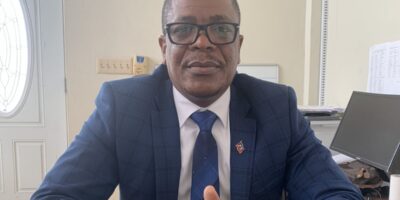
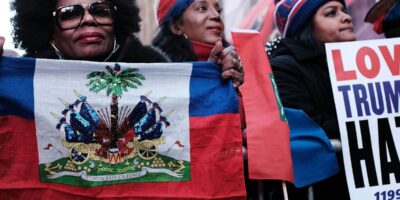
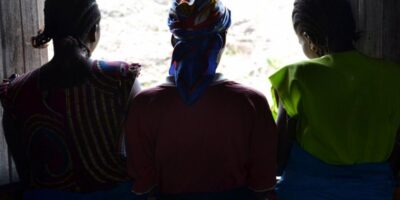
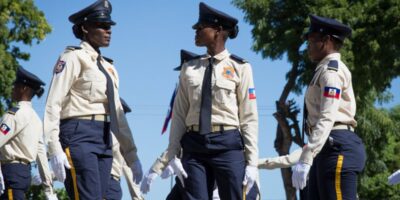

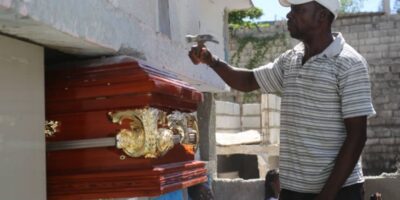
Comments